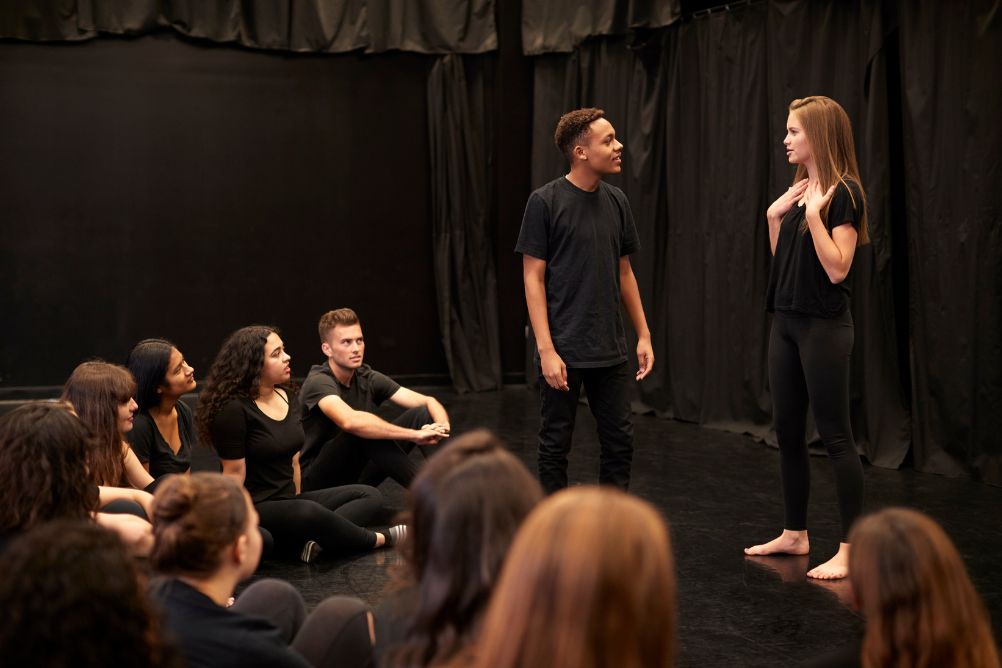Are you dreaming of becoming an actor? Whether you’re just starting out or have some experience under your belt, choosing the right acting class is a crucial step. Picking the right class based on your skill level can make all the difference in your growth as an actor. In this guide, we’ll walk you through how to find the perfect acting class for your needs.
Understanding Your Skill Level
Before you start looking for an acting class, it’s important to know where you stand as an actor. Are you a complete beginner, someone who has dabbled in acting, or do you already have some experience?
Self-Assessment: Start by being honest with yourself. Have you taken any acting classes before? Have you performed in plays, commercials, or even school productions? If you’ve never acted before, you’re likely a beginner. If you’ve done a few things here and there, you might be at an intermediate level. If you’ve had extensive training or a few professional gigs, you’re probably advanced.
Skill Levels:
- Beginner: No experience or just a little. You’re just getting your feet wet in the acting world.
- Intermediate: Some experience with acting. You’ve taken a few classes or have some stage or screen experience.
- Advanced: Significant experience in acting. You’ve taken many classes and may have professional experience.
Common Mistakes: One common mistake is overestimating your skill level. If you think you’re more advanced than you actually are, you might end up in a class that’s too difficult, which can be discouraging. On the other hand, if you underestimate your skills, you might find yourself in a class that’s too easy, which can be boring. Being realistic about where you stand will help you find a class that’s just right for you.
Types of Acting Classes
There are many different types of acting classes out there. Knowing what’s available can help you find a class that matches your skill level and interests.
Different Class Types:
- Improv: These classes focus on improvisation, helping you think on your feet and be more spontaneous in your acting.
- Method Acting: This technique teaches you to draw on your own emotions and experiences to bring depth to your character.
- Voice Training: These classes help you develop your vocal skills, which is crucial for both stage and screen acting.
- Scene Study: In these classes, you’ll work on specific scenes from plays or movies, focusing on character development, emotions, and interaction with other actors.
Matching Skill Levels:
- Beginners might benefit from a general acting class that covers the basics of acting, including voice, movement, and basic scene study.
- Intermediate actors might want to focus on a specific technique, like method acting or improv, to develop their skills further.
- Advanced actors might prefer a scene study class or a class that focuses on audition techniques to prepare for professional work.
Specialized vs. General Classes: If you have a specific interest, like wanting to improve your improv skills, a specialized class might be the way to go. However, if you’re still exploring different aspects of acting, a general acting class could provide a broader foundation.
Researching and Comparing Acting Classes
Once you know what type of class you’re looking for, it’s time to start researching your options.
Instructor Experience: One of the most important factors to consider is the experience of the instructor. Look for instructors who have real-world acting experience and a proven track record of success. A great teacher can make a huge difference in your learning experience.
Class Size and Format: The size of the class can also impact your learning. Smaller classes often provide more individual attention, which can be beneficial for beginners. Larger classes might offer more diverse scene partners and perspectives, which can be useful for more advanced students. Also, consider whether you prefer an in-person class or an online format. Online acting classes can offer flexibility, while in-person classes can provide more direct interaction.
Student Reviews: Take the time to read reviews from past students. This can give you insight into what the class is really like and whether it’s a good fit for your needs. Look for reviews that mention specific benefits or challenges of the class.
Cost vs. Value: Acting classes can vary widely in cost. It’s important to balance your budget with the quality of the class. Sometimes paying a bit more for a highly recommended class with a top-notch instructor can be worth the investment.
Making the Final Decision
After doing your research, it’s time to make your decision.
Trial Classes: If possible, try to attend a trial class or workshop before committing. This can give you a feel for the instructor’s teaching style and the class environment.
Location and Schedule: Practical considerations like the location of the class and its schedule are also important. Choose a class that fits into your life without causing too much stress. If the class is too far away or the schedule is too demanding, you might find it hard to stay committed.
Personal Goals: Finally, make sure the class aligns with your personal acting goals. Whether you want to break into the industry, improve your skills for a hobby, or prepare for auditions, the right class should help you move closer to your goals.
Conclusion
Choosing the right acting class for your skill level is a big decision, but it doesn’t have to be overwhelming. By understanding your current skills, researching your options, and considering your personal goals, you can find a class that’s just right for you. Remember, the right acting class can be the first step toward a successful acting career or a fun and rewarding hobby. So take your time, do your research, and make the choice that feels best for you. Happy acting!



